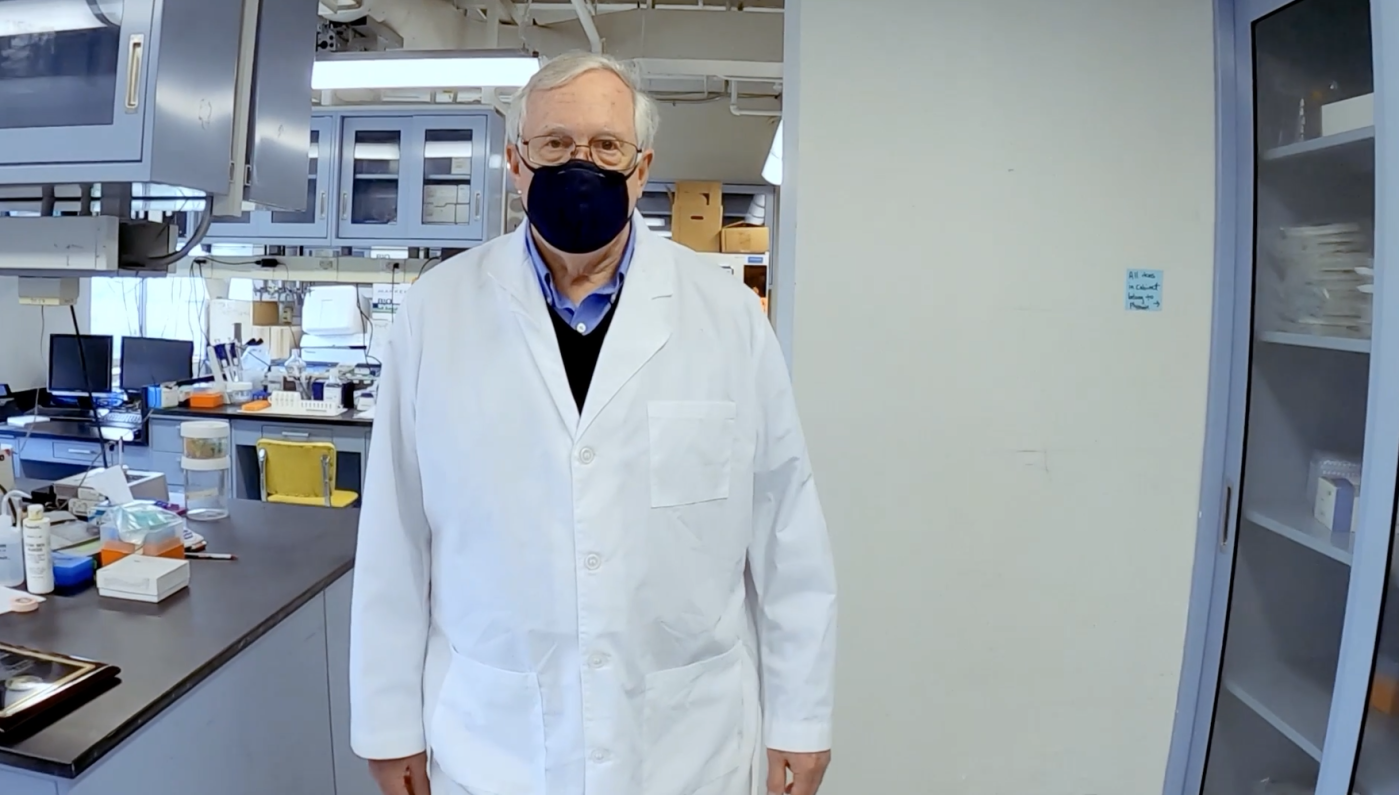The following feature is part of the series, VA Researchers Who Served. These profiles bring to life the critical work that VA researchers are doing for the Veteran community and highlight and recognize their military service, while including a touch of human interest and an inspirational tone. The series honors those who once served and who continue to serve through their VA research endeavors.
Dr. Stephen Plymate, an Army Veteran, is an endocrinologist at the VA Puget Sound Health Care System in Seattle. He’s a world leader in prostate cancer research. One of his studies became the highest-cited paper of 2019 in the high-impact Journal of Clinical Investigation. The study focused on the role of steroid hormone receptors, a type of protein, in a form of prostate cancer that grows even when testosterone levels in the body are reduced to very low levels. Last year, he won the William R. Middleton Award, the highest honor awarded annually by VA’s Biomedical Laboratory Research and Development Service to senior VA researchers for their outstanding scientific contributions. At the University of Washington, he’s part of the Institute for Prostate Cancer Research, which brings together a world-renowned team of scientists and clinicians to understand the causes of and treatments for prostate cancer. He has more than 240 peer-reviewed publications and patents.
What motivated you to join the military?
I joined the Army during the Vietnam War in 1968. At the time, all graduates were drafted or had deferments from the Berry plan, a Vietnam War-era program that allowed doctors to defer military service until they completed medical school and residency training.
What inspired your research career?
I was inspired by my mentors at Madigan Army Medical Center in Tacoma, Washington, while serving during the Vietnam War from 1968 to 1971. Additionally, I did not see that you could be a physician without trying to better understand your patient’s disease. I attended college and medical school at the University of Nebraska and completed my fellowship at the University of Washington.
What kinds of research are you involved in? How does it potentially impact Veterans?
I’m involved in prostate cancer basic research and new drug development. Prostate cancer is the most common non-skin cancer in Veterans. About 35,000 Veterans with prostate cancer receive treatment in the VA system. I’m supported by VA’s office of Clinical Science Research and Development (CSRD) in efforts to move lead compounds into an investigational new drug and in prostate cancer clinical trials. CSRD is focused on advancing ideas from scientific discovery to clinical application to improve the health care of Veterans.
How do you feel about the possibility of making life better for Veterans through your research?
It’s satisfying to be able to continue to work on problems involving Veterans that I saw beginning to develop while they were on active duty, or in some cases may have been a result of their active duty experience. Although I retired from the Army at age 48, that would have been way too young not to be able to continue the work started in the Army. VA provides that opportunity.
Does being a Veteran give you a greater emotional tie to the work you’re doing or more insight into Veterans’ needs?
It is my duty as a physician, whether or not I am a Veteran, to continue to provide Veterans a service. Having been in the service provides perspective to better understand what is needed.
Based on your life experiences to date, what do you believe are the keys to success? What motivational tips would you share?
Focus and don’t hesitate to say, “I don’t know the answer.” Since we haven’t cured many cancers, it’s our purpose to explore the science to improve our success. This can’t be done without research coupled with clinical work.
What’s the next step for you in your VA career?
Keep exploring, move the research forward, and provide the best care possible for our Veterans. Now is not the time to quit.
More Information
Click here to read the full story.
Click here to learn more about VA research.
Topics in this story
More Stories
In a new series that highlights advancements in VA health care, VA researchers and clinicians are appearing on a Veteran-themed media platform—Wreaths Across America Radio—to tout their critical work.
Recently published findings from the VA Disrupted Care National Project [...]
Diverse representation of women in health care research allows MVP to make discoveries for women’s health






